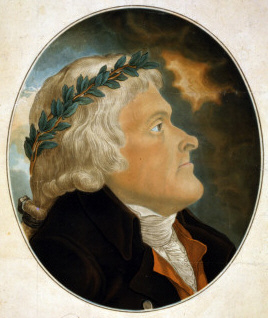Recent Thoughts On Anticipations, The Canon, and Reason
 Here are some thoughts I exchanged today with several friends from the Facebook page. I post them here not because they are particularly insightful or definitive, but because the subject is important and perhaps they may serve as fuel for further thought.
Here are some thoughts I exchanged today with several friends from the Facebook page. I post them here not because they are particularly insightful or definitive, but because the subject is important and perhaps they may serve as fuel for further thought.So it seems to me that the same quality MUST be true of each faculty which is part of the canon. It would seem pretty clear that this is true of the faculty of pain and pleasure. We perceive something as pleasurable or painful “automatically” without needing to “process” anything in our minds. If there is some error in concluding that, if eating 1 ice cream cone at a sitting is pleasurable, eating 100 ice cream cones at a sitting will also be pleasurable, the error is in the reasoning mind, not in the sense of pleasure.
So here is where it is tricky with Anticipations / Preconceptions and why I think Dewitt is right and the “later Epicureans” referenced in Diogenes Laertius were wrong. If we admit into the canon any “conception” that has been formed by our own personal experience and thinking, then we are admitting the possibility of error into the canon itself. Any “concept” as most people understand that word is something that is formed in the reasoning mind by putting together and abstracting an idea from separate instances of things that we conclude are part of that idea. (After we see and touch various pines and oaks and maples our minds will form a concept of a tree.) But this is NOT an automatic process, and it certainly involves the use of OPINION to decide how to define particular concepts. There are NO Platonic forms or ideas of trees, or of “virtue,” existing anywhere in the universe (or out of it in another dimension). CONCEPTS of any kind are thus “not real” and are subject to error. As important and critical as Concepts and reasoning are (paraphrasing: wise men apply reason to all important affairs of life and therefore avoid the effects of chance), concepts are the creatures of opinion as to how a particular set of circumstances should be assessed, and therefore cannot be viewed with the same deference as we view eyesight, hearing, or pain/pleasure.
However, and this is what I presume is the key, Anticipations constitute a faculty of perceiving something that otherwise could not be perceived at all without them (just as we could feel no pleasure, or see no trees, without those two faculties). So what is it that this faculty is perceiving? Dewitt argues well, I think, that what is being perceived is “abstract relationships,” such as “justice”, “divinity,” “time,” (the explicit examples) and I would probably also argue “friendship” (although that might be a subset of “justice”). The Anticipations are not programmed to perceive particulars, like capitalism or socialism or slavery or freedom. They are programmed to perceive relationships that allow us to recognize that such instances as “justice” or “injustice” exist. Once those relationships are recognized, the information is then passed to the pain/pleasure mechanism to provide a response of pain and pleasure. It is only at that subsequent point, in the mind, that all of the sensations related to a particular object under consideration are reviewed, opinions are added, concepts are formed and used, and conclusions are reached.
It is probably useful to analogize this to instincts in animals. We see that dogs and cats are “disposed” to act in differing ways. Their minds can be taught to overcome their instincts, just as we can decide to ignore our own instinctual/anticipatory sensations. Regardless, the mechanism exists within them (and us) and provides critical information that we must take care to process properly.
Viewed in this light, one of the important errors made by Aristotle/John Locke/Ayn Rand is to fixate on the mind at birth being a “blank slate” that is programmed purely by REASON without reference to Natural / Instinctive guidelines. From the perspective of fixating on being blank at birth, “emotion” is considered to be something that is purely learned, purely “chosen” by the reasoning process, rather than something that is deeply influenced by Nature. Such a perspective ignores the Epicurean observation that anticipations exist and are tuned to recognize certain relationships, just like eyes perceive only with a range of wavelengths of light, and just as pleasure and pain are tuned to recognize certain relationships as painful and some as pleasurable. This last part leads me back to Lucretius’ phrase “divine pleasure, guide of life.” While Pleasure (and Pain) are part of the canon, and all sensations of them are true just like with eyesight, it does seem that “Pleasure” has a peculiarly important “guiding” role in the canon. We could go deaf or lose our sense of smell and get along fairly well, but if we truly lost our full sense of pain/pleasure, I don’t see how we could continue to live at all.
But the truth is that Pleasure is real, it is “always true,” and multiple observations by multiple people at multiple time establishes, without any need to “reason” about it, that “freedom is pleasurable,” “slavery is painful,” “justice is pleasurable, injustice is painful” and the like. If we did not have anticipations to recognize the relationships, and pleasure/pain to register Nature‘s seal of approval and disapproval, no amount of reasoning and conceptualization in the world could ever establish the pleasantness of freedom and justice, and the unpleasantness of slavery and injustice as anything other than an arbitrary whim.
Therefore it is no accident that the man who referred to men as being endowed by their creator with certain inalienable rights, among them life, liberty, and the pursuit of happiness, also wrote:
“He who made us would have been a pitiful bungler, if he had made the rules of our moral conduct a matter of science. For one man of science, there are thousands who are not. What would have become of them? Man was destined for society. His morality, therefore, was to be formed to this object. He was endowed with a sense of right and wrong, merely relative to this. This sense is as much a part of his Nature, as the sense of hearing, seeing, feeling; it is the true foundation of morality, and not the [beautiful], truth, &c., as fanciful writers have imagined. The moral sense, or conscience, is as much a part of man as his leg or arm. It is given to all human beings in a stronger or weaker degree, as force of members is given them in a greater or less degree. It may be strengthened by exercise, as may any particular limb of the body. This sense is submitted, indeed, in some degree, to the guidance of reason; but it is a small stock which is required for this: even a less one than what we call common sense. State a moral case to a ploughman and a professor. The former will decide it as well, & often better than the latter, because he has not been led astray by artificial rules. “
____________________
The quote is from Jefferson’s letter to Peter Carr, and the reference to “no amount of reasoning and conceptualization in the world could ever establish the pleasantness of freedom and justice, and the unpleasantness of slavery and injustice as anything other than an arbitrary whim” is a view I have shamelessly taken from Jackson Barwis’ “Dialogues Concerning Innate Principles.”

